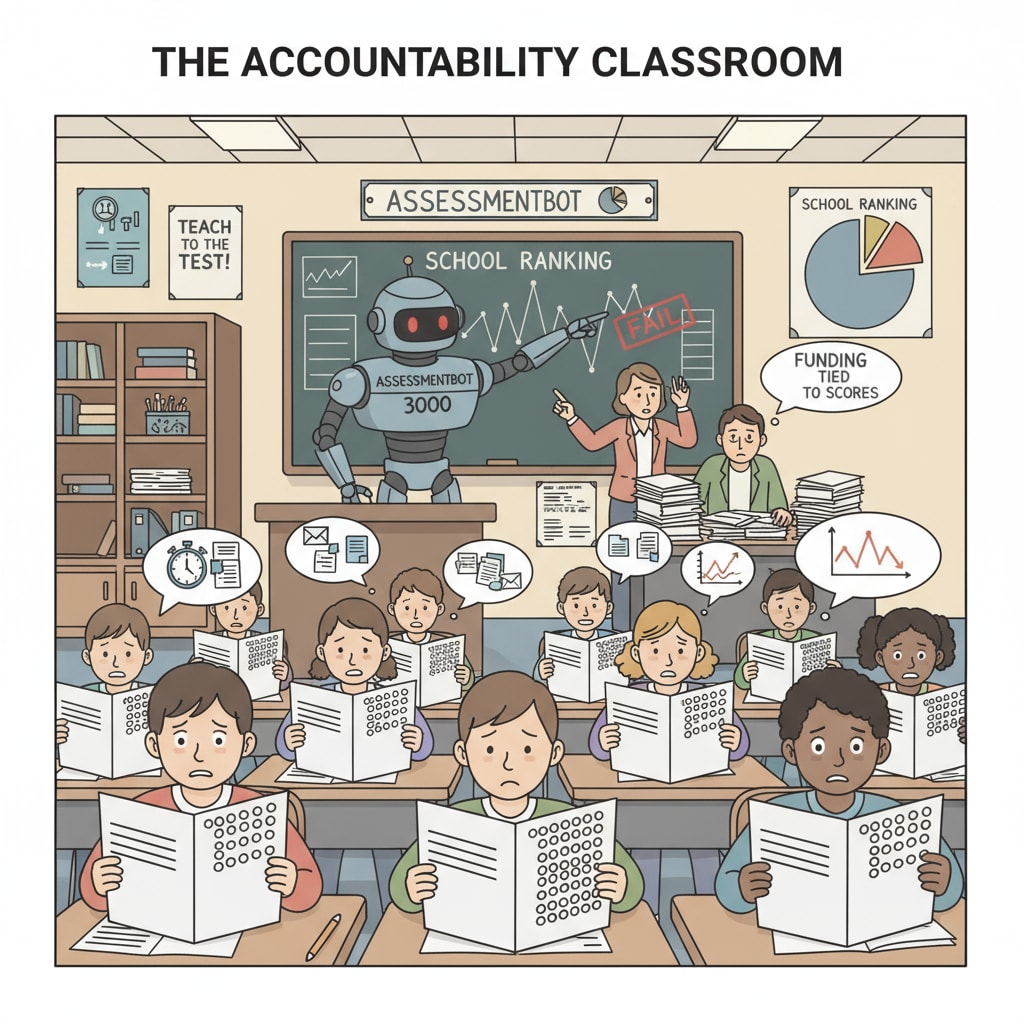The education accountability system in the US, along with the NCLB Act and its implications for school leadership, has undergone a remarkable evolution over the years. This evolution has significantly impacted various aspects of the education system.

The Genesis of Education Accountability in the US
The journey of education accountability in the US can be traced back to the 1983 report ‘A Nation at Risk’. This report highlighted the poor performance of the US education system compared to other countries. It pointed out issues such as low student achievement and a lack of rigor in the curriculum. As a result, there was a growing demand for increased accountability in schools. This initial push set the stage for a series of policy changes that would reshape the education landscape. For example, schools started to be more closely monitored for student outcomes. A Nation at Risk on Wikipedia

The Rise of the NCLB Act and Its Far-reaching Effects
The No Child Left Behind (NCLB) Act, which came into effect in 2002, was a significant milestone in the evolution of education accountability. The act aimed to ensure that all students, regardless of their background, achieved a certain level of proficiency in reading and math. It introduced standardized testing as a key measure of accountability. Schools were required to meet annual yearly progress (AYP) targets. If they failed to do so, they faced various sanctions. This had a profound impact on school leadership. Principals now had to focus more on test scores and ensure that teachers were teaching to the test. No Child Left Behind Act on Britannica
The NCLB Act also changed the relationship between principals and teachers. Teachers were under more pressure to improve student test scores, and principals had to manage this pressure. They needed to provide professional development opportunities to help teachers enhance their teaching skills. However, this sometimes led to a more transactional relationship, where the focus was mainly on achieving test score goals rather than on holistic teaching and learning.
Readability guidance: As we can see, the evolution of education accountability in the US, especially with the NCLB Act, has had a complex impact on school leadership and the overall education system. The changes have not only affected the internal dynamics of schools but also the relationship between schools and the communities they serve.


